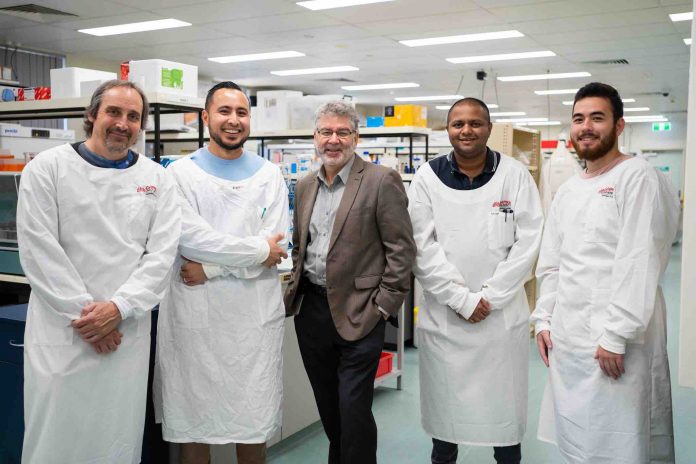An international team of scientists from Menzies Health Institute Queensland (MHIQ) at Griffith University and from City of Hope, a research and treatment centre for cancer, diabetes and other life-threatening diseases in the US, has developed an experimental direct-acting antiviral therapy to treat COVID-19.
Traditional antivirals reduce symptoms and help people recover earlier. Examples include Tamiflu®, zanamivir and remdesivir.
This next-generation antiviral approach used gene-silencing RNA technology called siRNA (small-interfering RNA) to attack the virus’ genome directly, which stops the virus from replicating, as well as lipid nanoparticles designed at Griffith University and City of Hope to deliver the siRNA to the lungs, the critical site of infection.
“Treatment with virus-specific siRNA reduces viral load by 99.9%. These stealth nanoparticles can be delivered to a wide range of lung cells and silence viral genes,’’ said co-lead researcher Professor Nigel McMillan from MHIQ.
“Treatment with the therapy in SARS-Cov-2 infected mice improved survival and loss of disease. Remarkably, in treated survivors, no virus could be detected in the lungs.’’
Professor Kevin Morris, co-lead researcher from both City of Hope and Griffith University said: “This treatment is designed to work on all betacoronaviruses such as the original SARS virus (SARS-CoV-1) as well as SARS-CoV-2 and any new variants that may arise in the future because it targets ultra-conserved regions in the virus’ genome.”
“We have also shown that these nanoparticles are stable at 4°C for 12 months and at room temperature for greater than one month, meaning this agent could be used in low-resource settings to treat infected patients,” Professor McMillan said.
The results suggest that siRNA-nanoparticle formulations can be developed as a therapy to treat COVID-19 patients, as well as used for future coronavirus infections by targeting the virus’ genome directly.
“These nanoparticles are scalable and relatively cost-effective to produce in bulk,” Professor Morris said.
“This work was funded as an urgent call by Medical Research Futures Fund and is the type of RNA medicine that can be manufactured locally in Australia,’’ Professor McMillan said.








